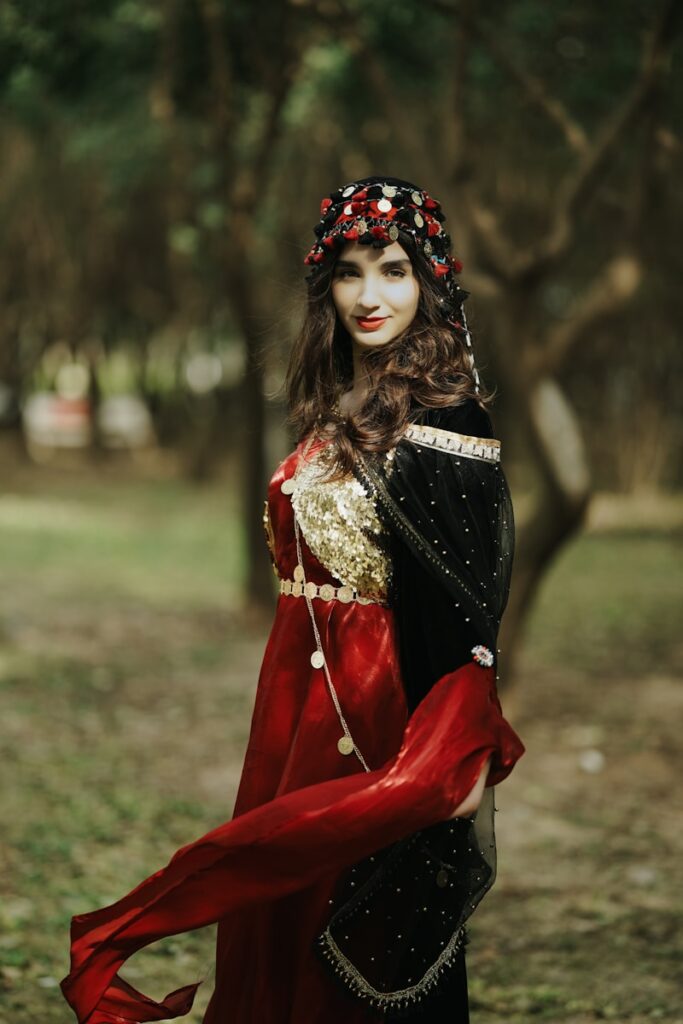
The 1940s, often characterized as ‘the war years,’ evoke images of rationing and global conflict. However, this pivotal decade also served as a dynamic period of social and cultural transformation in the United States. Beyond the historical context of World War II and its aftermath, the era embodied resilience, creativity, and an emerging sense of optimism—qualities beautifully reflected in the names bestowed upon millions of babies born during this time. These names transcended mere labels; they represented deep cultural, artistic, and fashionable significance, often inspired by prominent figures in the public eye or influenced by a diverse blend of cultural and linguistic traditions.
Names popular in the 1940s reveal a distinctive combination of strength, glamour, and creativity that continues to captivate modern audiences. As the nation emerged from the Great Depression and welcomed refugees fleeing war-torn regions, the naming landscape evolved to incorporate a harmonious blend of classical elegance and newly anglicized forms. The rise of sound films and the influence of iconic entertainers such as Frank Sinatra and Sarah Vaughan, alongside beloved characters like Mickey Mouse and Superman, enriched the cultural fabric that informed parental naming choices.
Looking back, these names offer more than a nostalgic glimpse into the past; they serve as a rich wellspring of inspiration for contemporary parents seeking names that are both distinctive and historically meaningful. Drawing from data that encompasses over 15 million male births and nearly 14.9 million female births during the decade, the Social Security Administration reveals a trove of timeless names that remain as appealing today as they were then. This exploration begins with seven names that stand out for their elegance, significance, and lasting charm.

1. **Mary**:Mary stood as the most popular female name of the 1940s, with an impressive 640,070 occurrences. This classic biblical name, deeply anchored in Hebrew origins, carries rich and multifaceted meanings such as ‘sea of bitterness,’ ‘wished-for child,’ and ‘rebelliousness.’ Its lasting appeal is largely attributed to its profound religious significance, as the name of Jesus Christ’s mother, which grants it a sacred and universally recognized status.
During the 1940s, Mary symbolized a pillar of tradition and faith amid a rapidly evolving world. It provided a sense of stability and timeless elegance, making it a favored choice among parents. The name’s simplicity, combined with its deep historical and spiritual roots, enabled it to retain its leading position throughout an era defined by global conflict and emerging post-war prosperity, securing its status as an enduring classic.
For contemporary parents, Mary continues to be a refined and meaningful selection. Its concise and elegant sound remains perpetually stylish, offering a connection to heritage without feeling outdated. Whether chosen to honor family legacy or for its intrinsic grace and strength, Mary remains a name that balances familiarity with profound significance, ideal for a child truly regarded as a ‘wished-for’ blessing.

2. **Linda**:Linda ranked as the second most popular female name of the 1940s, with 531,658 occurrences. This linguistically rich name bridges European and Spanish origins with elegance. Originally serving as a medieval short form for German names containing the element ‘lind,’ it conveys gentle meanings such as ‘soft’ or ‘flexible.’ This delicate and lyrical quality resonated deeply with parents during a decade marked by hardship yet also a search for comfort and tenderness.
Adding to Linda’s allure is its connection to the Spanish word ‘linda,’ which translates directly to ‘beautiful.’ This dual origin endows the name with universal charm, combining Germanic strength with Latin grace. Its surge in popularity throughout the 1940s reflects a growing appreciation for names that felt both familiar and inherently lovely, making it a fashionable choice of the era.
In contemporary usage, Linda presents as a sweet and melodic name that has shed much of its mid-20th-century commonness, rendering it fresh and distinctive once again. Its pleasant phonetics and straightforward spelling enhance its accessibility, while its dual meanings of ‘soft’ and ‘beautiful’ offer a heartfelt sentiment. For parents seeking a name that conveys elegance with a hint of vintage charm, Linda emerges as a truly enchanting rediscovery.

3. **Barbara**:Barbara ranked as the third most popular female name in the 1940s, with 425,267 babies given this name. Rooted in a fascinating Greek heritage, Barbara derives from the word ‘barbaros,’ meaning ‘foreign.’ Rather than carrying a negative connotation, this origin likely referred to someone from a different land or speaking another language, which imparts the name with an exotic and distinctive charm.
The name’s popularity during the 1940s, a decade marked by significant immigration and cultural exchange, is especially noteworthy. As refugees from war-torn countries arrived in the United States, the appreciation for names with diverse origins may have grown, even if subconsciously. Barbara’s strong and resonant sound conveyed both a sense of established tradition and subtle adventurousness, reflecting a resilient elegance that aligned well with the era’s spirit.
Today, Barbara remains a timeless choice distinct from more contemporary naming trends. Its classic form and unique meaning give it a substantial character that appeals to parents who value historical depth and gravitas. Selecting Barbara for a child today embraces a name that has gracefully endured over time, offering a quiet tribute to global connections and lasting strength.

4. **Patricia**:Patricia ranked as the fourth most popular female name of the 1940s, with 411,412 occurrences. Rooted in Latin, the name means ‘nobleman.’ While it did not become a common given name until the 18th century—particularly in Scotland—Patricia rose to widespread prominence in the 20th century, reflecting evolving naming traditions and an increased appreciation for names symbolizing status and dignity.
The name’s popularity in the 1940s mirrored the broader societal aspirations of the era. As the American economy flourished in the post-war years and many entered the middle class, names evoking classic elegance and refinement, such as Patricia, gained prominence. The name conveys a sense of both groundedness and aspiration, embodying quiet sophistication.
For modern parents, Patricia offers a distinguished and graceful choice that remains both classic and refreshingly relevant. Its formal elegance can be softened by charming diminutives like Patsy, popular in the 1940s, or other contemporary nicknames. Selecting Patricia bestows a child with a name rich in history, noble in meaning, and endowed with enduring appeal beyond transient trends.

5. **Alan**:Alan emerges as a compelling masculine name from the 1940s, notable for its strength and historical intrigue. Though its exact origin remains uncertain, it was first recorded in Brittany as early as the 6th century, indicating a profound historical lineage. In Breton, Alan carries the appealing meanings of ‘handsome’ or ‘little rock,’ symbolizing both physical allure and steadfast resilience.
The name’s popularity in the 1940s reflects a societal preference for names that conveyed strength and reliability—qualities highly esteemed during and following the war years. Alan offers an approachable yet solid and unwavering presence, perhaps representing the ‘little rock’ upon which families and communities rebuilt. Its concise and clear pronunciation further contributed to its widespread appeal.
Today, Alan retains a classic charm that makes it an excellent candidate for revival. It is simple, easy to pronounce, and familiar without being overly common among younger generations. For parents seeking a masculine name that embodies rugged good looks and quiet strength, Alan stands as a handsome and dependable choice with a rich, albeit somewhat mysterious, heritage.

6. **Albert**:Albert emerged as a favored masculine name during the 1940s, embodying qualities of noble strength that resonated deeply with the spirit of the era. Derived from the Germanic name Adalbert, Albert carries the powerful meaning of “noble and bright.” This combination of aristocratic lineage and intellectual radiance made it an appealing choice for parents wishing to instill strong, aspirational qualities in their sons.
The name’s frequent use throughout the decade reflects a cultural emphasis on tradition, resilience, and integrity. In a time shaped by global recovery and shifting values, a name signifying both honor and clarity held particular significance. Albert evokes a sense of dignity and refinement, suggesting a person of admirable character and thoughtful presence.
For contemporary families, Albert offers a timeless option that balances vintage elegance with renewed relevance. Its classic form lends itself to a variety of interpretations, whether retained in its full, stately version or shortened into an affectionate diminutive. With its noble roots and bright connotations, Albert remains a sophisticated and meaningful choice for a new generation.
7. **Andrew**:Andrew ranked among the most popular masculine names of the 1940s, distinguished by its clear Greek origin and enduring strength. Derived from the Greek word andreios, meaning “manly,” the name carries a direct and powerful significance. During a decade that deeply valued courage, resilience, and integrity, Andrew reflected the ideals held in high regard by families navigating a world shaped by war and reconstruction.
Its sustained popularity throughout the 1940s and in the decades that followed underscores its status as a reliable and classic choice. Andrew evokes a sense of stability and trustworthiness, aligning with the post-war desire for names rooted in tradition and strength. It conveys a timeless sense of masculinity—calm, capable, and honorable—that resonated strongly with the cultural values of the time.
Today, Andrew remains a refined and versatile name. Its meaning lends it a solid foundation, while its familiar and approachable sound ensures wide recognition and respect. For parents seeking a name that combines strength, simplicity, and tradition, Andrew continues to offer a dignified and enduring identity across generations.

8. **Carol**:Carol achieved remarkable popularity in the 1940s, ranking as the fifth most common name for girls with 292,330 recorded instances. Often considered a diminutive of Caroline or derived from the Latin Carolus, the name carries a range of meanings, including “hymn,” “song,” “man,” and “army.” This unique blend of lyrical beauty and quiet strength reflects the spirit of a decade defined by both emotional depth and enduring fortitude.
The melodic and accessible sound of Carol contributed to its wide appeal. During a time shaped by hope and hardship, its gentle tone and multifaceted meaning resonated with families seeking names that conveyed both softness and resilience.
Today, Carol presents a charming and understated choice for parents. Though it bears a vintage sensibility, its clean simplicity ensures it remains timeless rather than outdated. The name evokes clarity, warmth, and quiet confidence—ideal for a child who brings harmony to her surroundings. Whether interpreted as a “song” or as a figure of inner strength, Carol offers both elegance and depth rooted in history.

9. **Nancy**:Nancy ranked as the seventh most popular female name of the 1940s, with 252,058 recorded instances. Originating as a medieval diminutive of Annis and later Ann, it gradually evolved into a distinct and independent name. Its meaning—“favor” or “grace”—reflects the qualities that parents of the era often wished to bestow upon their daughters: kindness, elegance, and emotional strength in a time marked by renewal and compassion.
The appeal of Nancy endures through its clear, melodic sound and understated charm. It conveys a sense of warmth and approachability, while its classical roots provide an air of refined simplicity. Unlike names tied to fleeting trends, Nancy offers lasting appeal grounded in history and sentiment.
For contemporary families, Nancy presents a graceful and unpretentious choice. It evokes a sense of familiarity without feeling overly common, making it well-suited for a child whose presence brings joy and gentleness. Its timeless meaning and soft rhythm continue to resonate across generations, embodying both poise and sincerity.

10. **Judith**:Judith ranked as the ninth most popular female name in the 1940s, with 218,035 recorded instances. Rooted in Hebrew, the name means “Jewish woman” and carries deep biblical significance. Originally used to denote someone from the tribe of Judah, Judith embodies a strong sense of ancestry, spiritual identity, and cultural heritage. Its biblical presence offered families of the time a meaningful connection to tradition and moral grounding.
Judith remains a distinguished and thoughtful choice for modern parents. It conveys intelligence, dignity, and inner strength, setting it apart from more frequently chosen contemporary names. Its classic form is complemented by a timeless quality that ensures lasting relevance without appearing outdated.
Choosing Judith is a statement of conviction and grace. It honors the past while empowering the future, making it an ideal name for a child destined to carry herself with purpose, confidence, and enduring integrity.

11. **Betty**:Betty held the eleventh position among the most popular female names of the 1940s, with 194,622 recorded instances. As a diminutive of the classic name Elizabeth, Betty shares in its rich biblical meaning: “my God is an oath.” This profound origin, combined with its cheerful and accessible sound, helped solidify Betty’s widespread appeal. Its cultural presence was further elevated through media figures such as Betty Cooper from Archie Comics, reinforcing its image as a friendly and familiar choice.
Betty presents a refined yet approachable option for modern parents. With its succinct form and timeless rhythm, the name exudes both charm and clarity. It offers a graceful alternative to more complex or trend-driven names, standing out through its elegance and emotional resonance.
Selecting Betty is an embrace of joyful simplicity and enduring significance. It is a name that carries with it a sense of warmth and sincerity, well-suited for a child who brings light, delight, and steadfast meaning into the lives of others.

12. **David**:David ranked as the sixth most popular male name in the 1940s, with 426,365 recorded instances. This timeless Hebrew name holds deep significance, meaning “uncle” or, more broadly, “beloved.” Its prominence is rooted in its biblical association with King David, the revered ruler of ancient Israel, whose legacy symbolizes leadership, courage, and unwavering faith.
In the context of the 1940s, David reflected the societal values of resilience, loyalty, and emotional depth—qualities that resonated strongly in the aftermath of global conflict. The name combines regal heritage with heartfelt intimacy, offering both dignity and approachability.
Today, David remains a classic and enduring choice. Its historical depth and universal appeal continue to make it a preferred option for families seeking a name that conveys love, trust, and strength. With its rich spiritual legacy and emotional warmth, David remains an ideal choice for a child who is deeply cherished.

13. **Charles**:Charles ranked as the seventh most popular male name in the 1940s, with 361,760 recorded instances. Derived from the Germanic name Carolus, this French and English variant carries the meanings of “man” or “army.” Its long-standing association with European royalty and influential leaders has endowed it with a sense of authority, heritage, and timeless refinement.
The name Charles skillfully balances formal dignity with approachable charm. Diminutives such as Charlie add warmth to its stately foundation, offering versatility without compromising tradition. In the context of the 1940s, Charles resonated with parents seeking names that conveyed resilience, intellect, and moral character.
Today, Charles remains a distinguished choice that embodies lasting values and historical depth. Its elegance, cultural significance, and adaptability make it a strong and meaningful option for families in search of a name that combines strength with sophistication.

14. **Donald**:Concluding this list of enduring names from the 1940s, Donald ranked as the twelfth most popular masculine name of the decade, with 247,829 recorded instances. Derived from the Scottish Gaelic Dòmhnall, the name carries the formidable meaning of “ruler of the world.” This powerful etymology resonated with the spirit of the era, a time shaped by geopolitical transformation and a collective longing for stability and strong leadership.
Donald evokes a sense of authority and noble determination. Its deep Scottish roots enhance its distinguished character, while its historical resonance lends it both weight and timeless appeal. The name’s clarity and strength make it stand out amid more transient naming trends.
For today’s parents, Donald offers a classic and commanding option. It suggests confidence, legacy, and leadership—qualities that remain as relevant now as they were in the mid-twentieth century. With its storied past and resolute tone, Donald is well suited for a child destined to lead with purpose and dignity.




